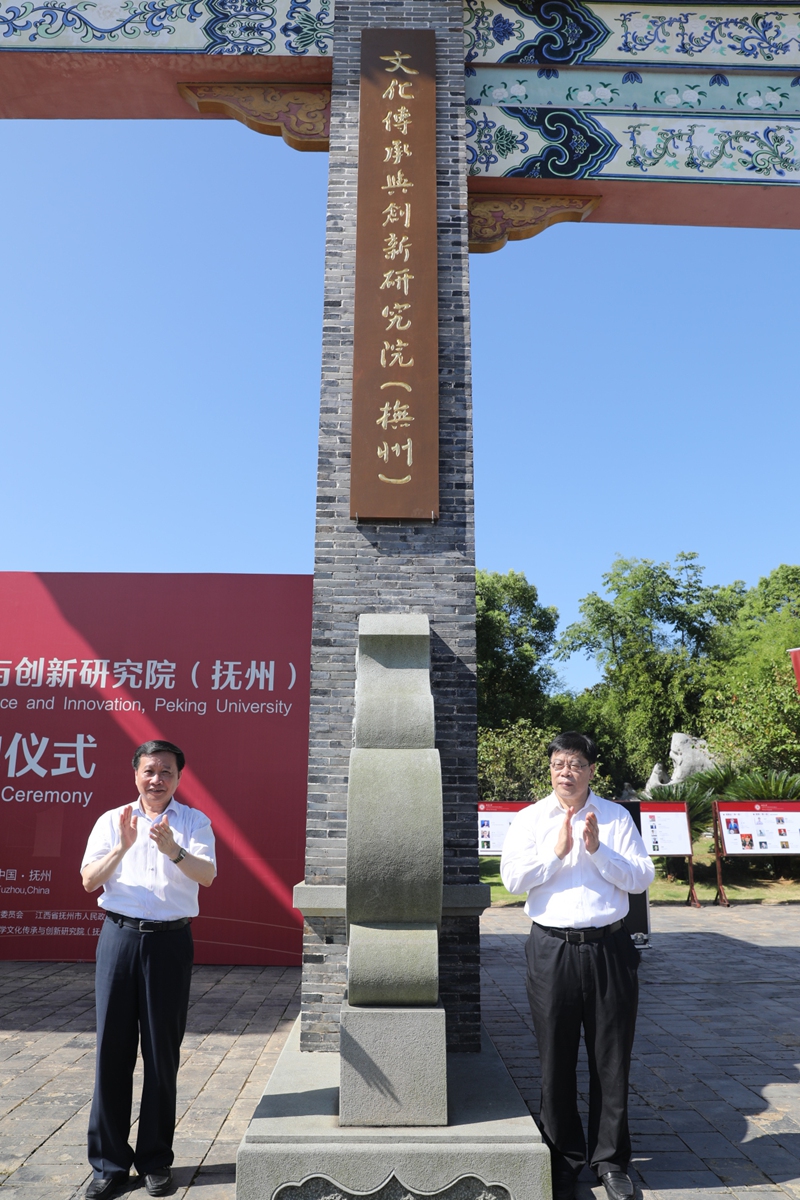Peking University establishes Institute of Cultural Heritage and Innovation in East China
Source: Global Times Published: 2020/8/2 17:28:40

The unveiling ceremony for Peking University's new institute in Fuzhou Photo: Courtesy of Fan Fan
The Institute of Cultural Heritage and Innovation of Peking University opened on Saturday in Fuzhou, East China's Jiangxi Province. The university chose the city for its profound cultural heritage and unique position in Chinese history.Wang Bo, vice president of Peking University, said that renowned university professor Zhang Shiying visited Fuzhou in 2016 and praised the city's cultural heritage, so he suggested cooperating with the city to establish a research institute of culture.
The institute has finally opened after four years of preparations as part of a new model exploring cooperation between schools and local governments and to build a new channel for cultural inheritance and innovative development.
Wang said he hopes the establishment of the institute will further exchanges and cooperation with the local government that can give full play to each other's advantages, connect global cultural and creative resources and put forward innovative ideas for the development of Fuzhou's cultural resources.
Zhang Hongxing, mayor of Fuzhou, also attended the opening ceremony of the institute, where he said that he expects much from the role the institute will play. Zhang said that the institute will be able to enrich regional cultural research at Peking University as well as further improve the inheritance and innovation of Fuzhou culture.
Zhang said that every year a number of key frontier projects will be carried out to enhance the influence of Fuzhou culture around the world.
Fuzhou is a city with a history that dates back to thousands of years. The area was part of the State of Chu during the Warring States Period (475BC-221BC). After Chu was conquered by the state of Qin, the region was included as part of that state's Jiujiang Commandery.
Fuzhou is historically important as the home of Wang Anshi, the famous reformist prime minister of the Song Dynasty (960-1279); Zeng Gong, an influential scholar and historian of the Song Dynasty; and Tang Xianzu, the great Ming Dynasty (1368-1644) dramatist.
The 2020 Fuzhou Cultural Life Season was also launched on Saturday. The season will run until September 30 and includes forums and exhibitions from the cultural and creative industry.
Posted in: MISCELLANY,ART